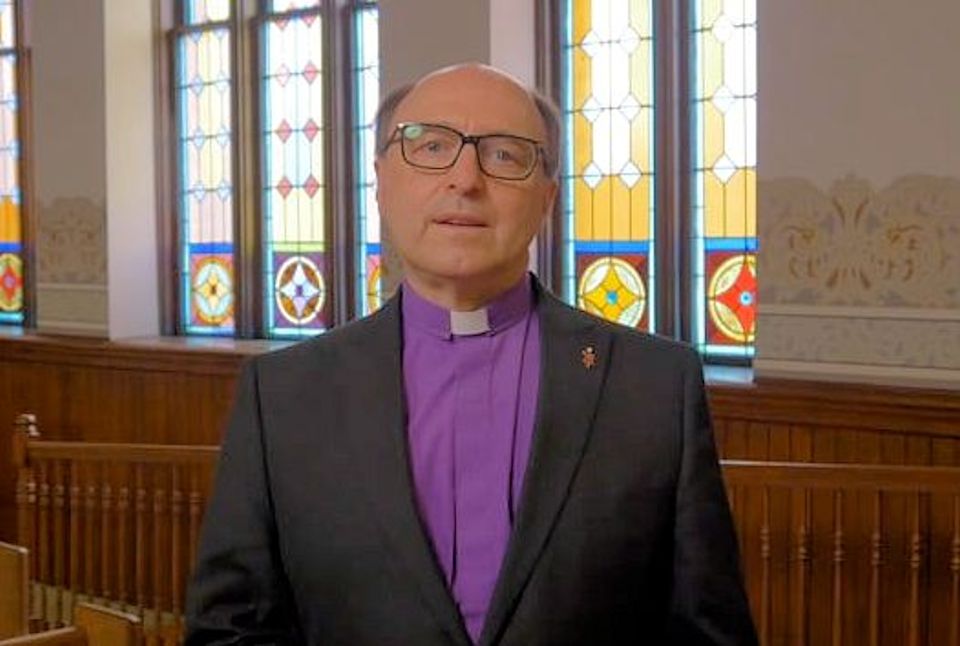Bishop David Bard calls for prayers for the Asian-American Pacific Islander (AAPI) community in the wake of killings on March 16, 2021 in Atlanta, GA.
Dear Friends in Christ in The Michigan Conference,
Earlier this week, the soul of our country was deeply wounded again as a twenty-one-year-old young man shot and killed eight people, six of them Asian-American women, in a killing spree at spas in Georgia. This heinous act of violence is only the latest in a series of verbal and physical attacks against Asian American and Pacific Islander (AAPI) individuals, which have accelerated since the beginning of the coronavirus pandemic. I am aware that the past year has seen an increase in violence of many kinds. Murder rates and other violent crimes have increased in several major cities in recent months. All such violence is to be decried, even as we seek solutions for it.
” To fail to see the image of God is to fail to live our faith. “
The violence that targets specific groups of people, violence rooted in racism or misogyny, is particularly pernicious and must be called out. Some may question the role anti-Asian racism played in this recent violence. The shooter was obviously a troubled person who had been a customer at some of the establishments he later terrorized. His motives may have been tangled, but among the tangle was murderous intent directed at Asian-American women. Whatever his reasons, his actions have deepened the fear and anxiety among Asian-Americans in this country, fear and anxiety fed by hatred and violence directed toward them since the beginning of the COVID crisis. While the coronavirus may have emerged in China’s human community, to take our frustrations out on Asian-Americans, to blame them and direct hatred and violence toward them is intellectually dishonest and morally obtuse.
“At the heart of our Christian faith is a belief that all persons are created in the image of God, that no matter the hue of our skin, the particular facial features we display, the weave of our hair, the place of our birth, the ancestry of our families, we carry within us the image of God.”
At the heart of our Christian faith is a belief that all persons are created in the image of God, that no matter the hue of our skin, the particular facial features we display, the weave of our hair, the place of our birth, the ancestry of our families, we carry within us the image of God. To fail to see the image of God is to fail to live our faith. The love of God we know in Jesus Christ is a love for all people, for all the nations. The Bible begins with the creation of humankind in the image of God and ends with a vision of the heavenly city through which the river of the water of life flows. On either side of the river is the tree of life, the leaves of which are for “the healing of the nations” (Revelation 22:2). The healing of the nations, healing offered to all people. God extends God’s love to all the nations and calls us to do the same.
We have been reminded too often in recent months of our failures to see the image of God in all and to love with the expansive love of God. Such failure is sin, and we are to struggle against sin wherever it is found, whether in our hearts, in our policies, in our cultural artifacts, or in our systems. Let us offer prayers for our Asian-American family members, members of our human family. Let us listen to their stories. Let us join together with all God’s people and pray the words of the hymn rooted in Revelation 22:2: “For the healing of the nations, Lord, we pray with one accord; for a just and equal sharing of the things that earth affords; to a life of love in action help us rise and pledge our word, help us rise and pledge our word.”
Bishop David Bard

COAAM: The Michigan Conference Committee on Asian American Ministries has also released a statement. Read it here.
Last Updated on January 9, 2023

